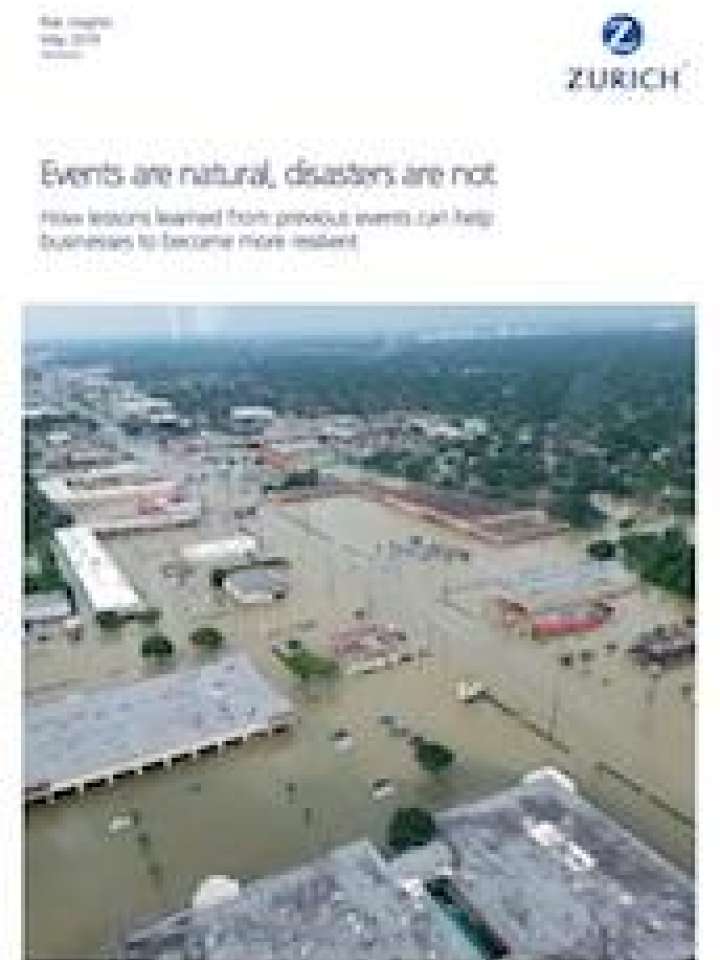Events are natural, disasters are not: How lessons learned from previous events can help businesses to become more resilient
Relying on years of first-hand experience and extensive research, Zurich has brought to light a number of lessons that can be used to prepare for any sort of calamity in virtually any part of the world. Using its Post-Event Review Capability (PERC) methodology, winner of the outstanding achievement award of the National Hurricane Center in April 2019, the insurer is able to illustrate strikingly similar challenges faced by risk managers regardless of where they operate. The PERC methodology provides research and independent reviews of large flood events, and it seeks to answer questions related to aspects of flood resilience, flood risk management and catastrophe intervention. It also looks at what went well, as well as opportunities for improvement, and results in a set of recommendations for the future. These recommendations are applicable to any hazard situation.
Why is PERC needed?
PERC studies provide guidance at a time when the number of disasters and their magnitude are growing at an unprecedented rate. While there has been a decline in disaster mortality (in relative terms) over the last decade, in most places there has not been significant success in halting the substantial increase in economic losses. There are profound knock-on effects to economic growth and development as well as to the general well-being of society.
Several of the studies reviewed the science on the increasing frequency and severity of climate hazards, especially extreme precipitation and storm surges. Future climate scenarios were laid out in PERC studies on European floods and across all the studies it was learned that if a certain level of protection is to be maintained (e.g. a 1-in-100-year flood, equal to the 1% annual probability), relying on historical data is not enough. Hazards change and planning must take this into account. The studies also show that societies can be vulnerable to repeated events and may still be recovering from one when the next one strikes.
In this report, risk managers and other risk professionals will learn how to address many of the challenges they encounter in preparing for and responding to disasters.
Explore further

